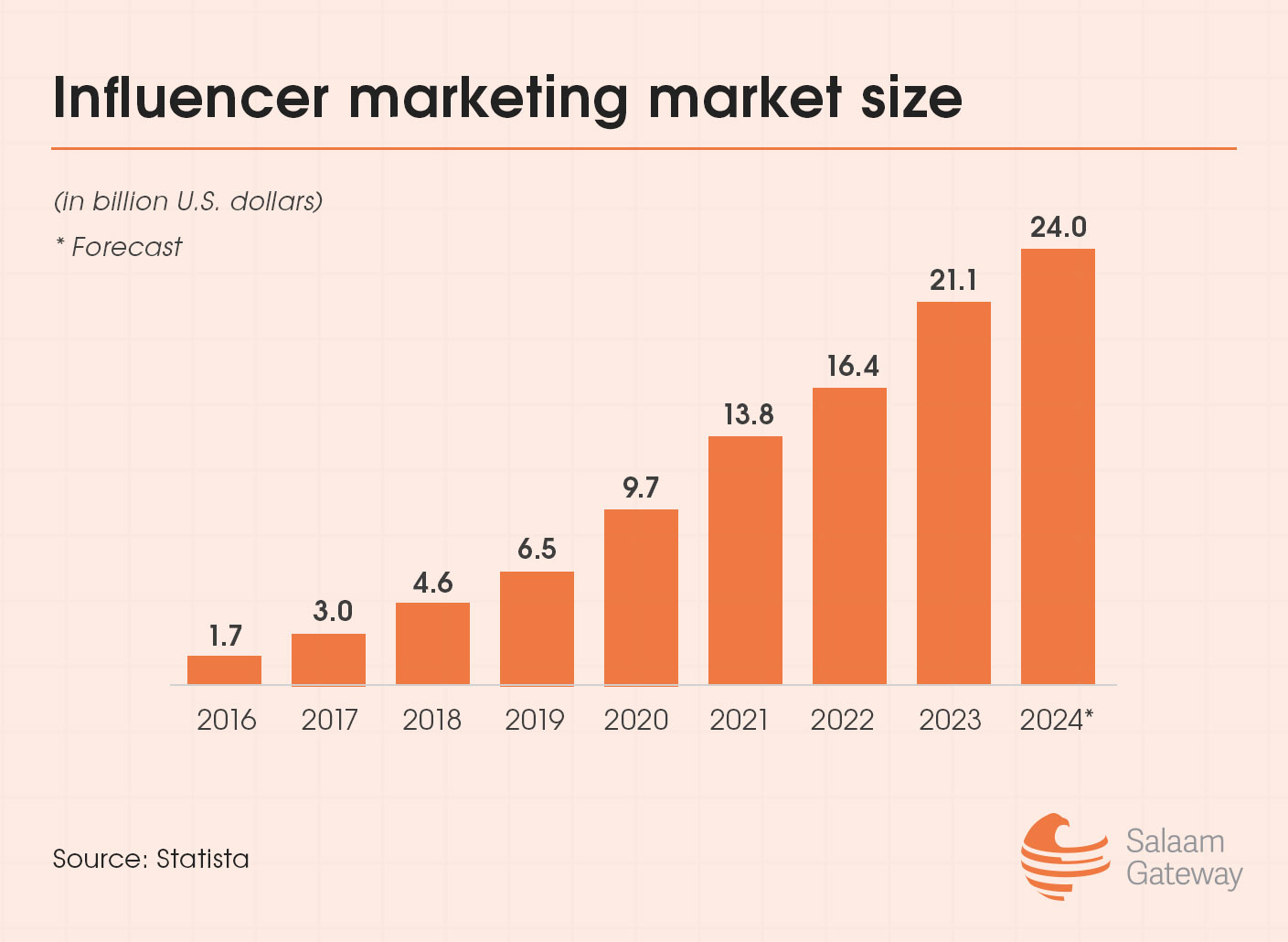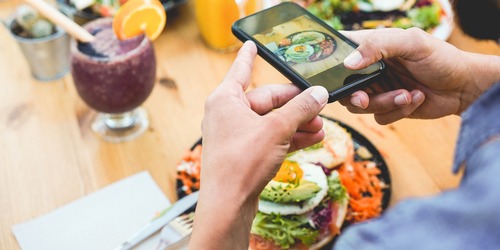Businesses have always welcomed endorsement. Someone who champions their offerings. Which is why brands and star power have historically crossed paths. Celebrities and athletes have endorsed products from food and beverages to cosmetics and household items to amplify their presence and uptake.
But in today’s time of new-media capitalization, it is almost a matter of course for businesses to leverage the power of technology to bolster their reach. Social media has given rise to a cohort of content creators who have developed a digital presence, focus on engagement and community and have become a trusted presence within their communities, strong enough to exert a considerable 'influence' on their followers.
This rising clout of influencers has forced businesses to return to the drawing board and pen a new marketing playbook.
The hype is not misplaced - the global influencer marketing market size has more than trebled since 2019, increasing from $6.5 billion to an estimated $24 billion in 2024, according to data and business intelligence firm Statista.
 The halal food sector is no different. It is an evolving space, both in terms of options and uptake, and is now no longer restricted to Muslims. There has been evidence of its adoption among non-Muslims, throwing the arena wide open for halal food businesses to capture a sizeable chunk of the overall F&B ecosystem.
The halal food sector is no different. It is an evolving space, both in terms of options and uptake, and is now no longer restricted to Muslims. There has been evidence of its adoption among non-Muslims, throwing the arena wide open for halal food businesses to capture a sizeable chunk of the overall F&B ecosystem.
However, for halal food to find continuous favour among consumers, businesses must tap into the growing power of influencers, forging a personalised connect with the consumer.
“Influencers, or rather, content creators, are crucial for halal food providers. With social media marketing dominating many brands' marketing budgets, this sector will only get bigger and more indispensable for every business in some way shape or form,” says Amena Khan, a UK-based social media influencer.
Sealing the deal
Influencers wield considerable hold on consumers' purchasing power – a study by PR agency Matter Communications, that surveyed more than 1,000 US consumers, revealed 69% of respondents are likely to trust an influencer, friend or family recommendation over information coming directly from a brand. Food and beverage generated the most consumer interest and most potential to act on influencer content, followed by health and wellness.
“Given how widely used social media is in this current day and age, influencers can play a vital role in a brand’s exposure and visibility to their Muslim consumers. All it takes is one image or short video of the restaurant going viral to reach a large and varied audience across the country - much quicker than any word of mouth or an online search would yield,” says Layla Hassanali, founder of Halal Girl About Town, a platform dedicated to finding the best halal restaurants in the UK.
Influencers can help forge an alliance with the wider non-Muslim consumer base, which may struggle to recognize the benefits of halal food beyond religious context. An all-inclusive approach may also blur the social distance between Muslims and non-Muslims and help combat issues like Islamophobia.
“To a non-Muslim, a halal restaurant might come across as having closed doors; a place that only caters to Muslims. With influencers continuing to post about halal food and growing their platform reach, they can open the doors to many non-Muslims by showing them that there is more to the restaurant/brand than just a halal certification,” adds Hassanali.
Impact of 'choices'
Influencers help form a genuine digital interaction, offering their own seal of approval and helping draw businesses and consumers closer. But for that to happen seamlessly, influencers must develop their own credibility. Especially in a field such as halal food, which has religious threads attached to it.
Hassanali explains: “Over time, an influencer’s platform will curate a specific audience that resonate with the influencer’s own lifestyle and brand choices. Lifestyle and brand choices are more impactful if they are in line with what you stand for.”


